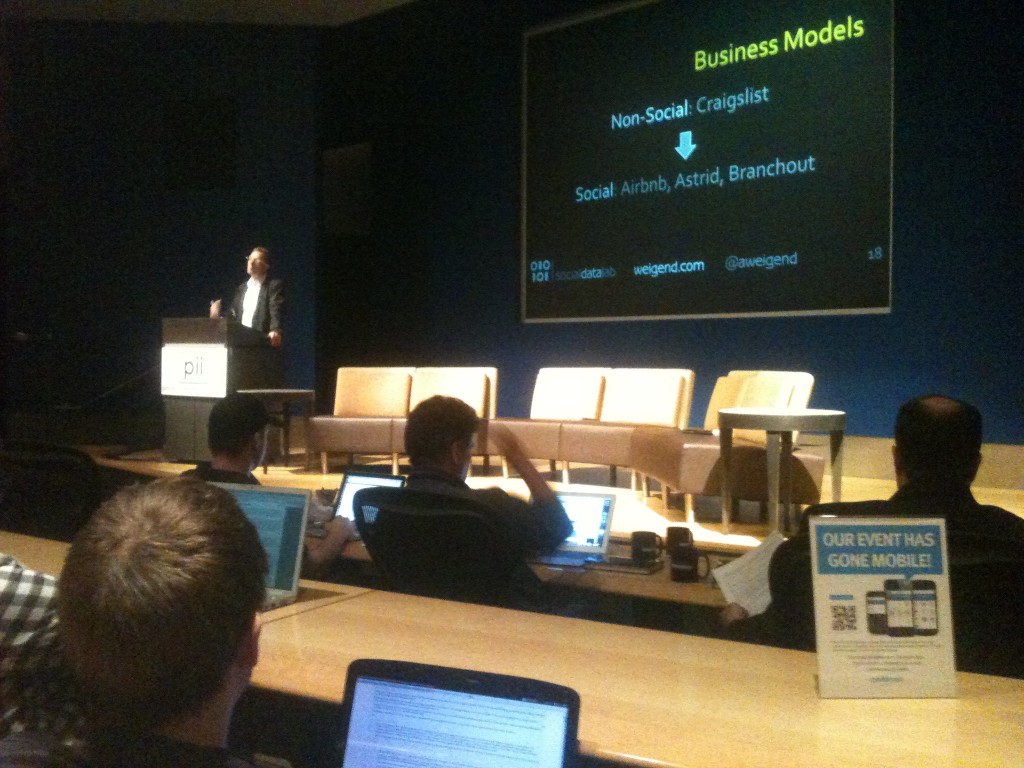Professor Weigend of Stanford is giving a talk on the nature of data and the next phase of the data revolution.
He states: ‘Communication is said to exist in order to transmit data. Forget it. Data exists to enable communication.” “Business models of entire industries are changing due to social identity.’ “Non social businesses like Craigslist give way to social businesses like AirBnB and Astrid.”
The interesting thing about his talk is that he does not mention the individual except in passing. He states that identity is changing to a social identity based only upon connections and relationships. Andrew Keen (the author wrote “The Cult of the Amateur”) asked if Dr. Weigend could address the internal life of people and how that was related to identity. Dr. Weigend said a number of words in a sequence but did not answer the question, as Mr. Keen pointed out. He then gave him a copy of the book, which is based upon discussions between the author and LinkedIn founder Reid Hoffman.
Dr. Weigend, a German raised in the former East Germany, displayed a copy of his Stasi birth record during his talk. It seemed like something of a non-sequitor, given that the rest of the talk is about the evolving nature of society in the wake of technology. Why would Dr. Weigend avoid answering what could have been a softball question? There seems to be a reluctance among many internet theorists to embrace the concept of the individual, to define a concept of an individual participating or not in a social context, but rather a structure where social “connectivity” is assumed. What could possibly be so unnerving to these theorists about the role of individuals in a social context? Could it be that human society will wind up in a kind of Borg, where the individual identity and awareness will be routinely suppressed or ignored – ala various 20th century dystopic science fiction novels? Where does the individual go when identity is painted as purely reflective of technology-dominated social activity?
There are many instances throughout human history where various structures are created in order to generate social control of the ‘masses.” In one sense, thank Heavens for some social structure. But the West and it’s philosophy is predicated upon the notion of an individual consciousness, contributing and collaborating as makes sense for that individual. Why the moves towards a dystopic kind of technology-driven social collectivism? Why has the individual become suddenly so inconvenient? -Kelly
